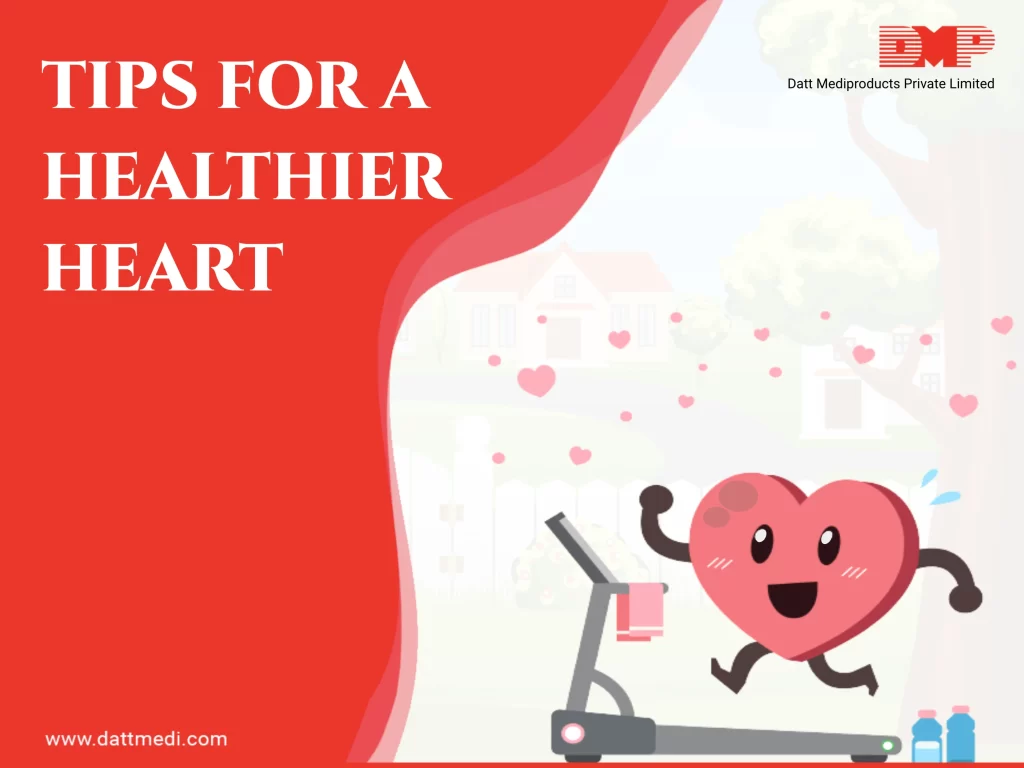
Heart diseases are a leading cause of death in both men and women. People with high cholesterol levels, who smoke often, are overweight or obese, who don’t eat a healthy diet and have a sedentary lifestyle are at a higher risk of developing heart diseases.
There may be hereditary reasons too but the good news is that heart diseases can be prevented. A healthier lifestyle makes a healthy heart.
We bring a list of tips for your heart health.
Know your health history:
Talk to your doctor about your health history and even your risk factors. Once updated, follow a healthier lifestyle. Avoid the things which could aggravate the risk levels.
Eat a heart healthy diet:
How much you eat is equally important as to what you eat, so control your portion size. Use small plate or bowls. Do not overload your plate. Eat more veggies & fruits as these are a rich source of vitamins and minerals with less in calories. Incorporate whole grains in your diet which are high in fibers and other nutrient contents. Limit the intake of unhealthy fats, consume low fat protein sources, and reduce salt/ sodium intake. Avoid junk foods and create daily menus . Occasional treats can be managed.
Move more, sit less/ Be more active:
Getting into any kind of a regular physical activity is important. An average individual needs at least a 150 minutes of moderate intensity aerobic activity in addition to muscle strengthening activities at least 2 days each week. These activities can be the simplest ones too which can get your heart beat at a faster pace such as taking stairs, walking or dancing.
Check Obesity & Maintain a healthy BMI:
People with high BMI who are overweight or obese are at a higher risk of developing heart disease, in addition to other conditions such as high blood pressure and even type 2 diabetes.
Manage diabetes:
Diabetes can cause too much sugar in the blood building up the plaque levels and damaging arteries. The deposited plaque can narrow down the arteries’ lumen ultimately affecting the blood flow and may result in various heart diseases.
Quit smoking:
Live a smoke free life. A quit plan can be helpful too. Choose a healthy alternative. Reward yourself with your saved money.
Take medicines as directed:
Follow your doctor’s instructions very carefully if you are on any medications be it for high cholesterol, diabetes or even high blood pressure. Complete the treatment plan and never stop taking your medicines without consulting your doctor or a pharmacist.
Rethink your drink:
Choose water instead of aerated sugary drinks and cut down your calories levels. If you choose to drink alcohol, do so in moderation.
Know your numbers:
Both high cholesterol levels and high blood pressure can cause heart diseases. Get your levels checked on a regular basis, cholesterol every 5 years and blood pressure every week or so and follow measures to control them. These may not have a proper sign or symptoms so it’s better to be forethoughtful and provident.
Do You Know that nearly 1 in 2 adults has high blood pressure?
Manage Stress: Managing stress will not only help to keep your heart healthy but also prevent several other health complications such as depression, high blood pressure etc. Nowadays, various options are available for stress management with yoga, meditation and deep breathing as the most common and effective ways.
The mantra is not to ignore the changes on how you feel. We recommend consulting a doctor if you notice any changes and opt for a regular Heart Health check.
Visit our website www.dattmedi.com to read other blogs cardiac health.




